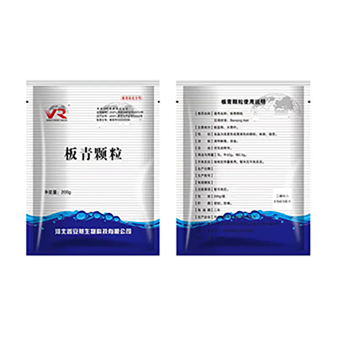- Afrikaans
- Albanian
- Amharic
- Arabic
- Armenian
- Azerbaijani
- Basque
- Belarusian
- Bengali
- Bosnian
- Bulgarian
- Catalan
- Cebuano
- Corsican
- Croatian
- Czech
- Danish
- Dutch
- English
- Esperanto
- Estonian
- Finnish
- French
- Frisian
- Galician
- Georgian
- German
- Greek
- Gujarati
- Haitian Creole
- hausa
- hawaiian
- Hebrew
- Hindi
- Miao
- Hungarian
- Icelandic
- igbo
- Indonesian
- irish
- Italian
- Japanese
- Javanese
- Kannada
- kazakh
- Khmer
- Rwandese
- Korean
- Kurdish
- Kyrgyz
- Lao
- Latin
- Latvian
- Lithuanian
- Luxembourgish
- Macedonian
- Malgashi
- Malay
- Malayalam
- Maltese
- Maori
- Marathi
- Mongolian
- Myanmar
- Nepali
- Norwegian
- Norwegian
- Occitan
- Pashto
- Persian
- Polish
- Portuguese
- Punjabi
- Romanian
- Russian
- Samoan
- Scottish Gaelic
- Serbian
- Sesotho
- Shona
- Sindhi
- Sinhala
- Slovak
- Slovenian
- Somali
- Spanish
- Sundanese
- Swahili
- Swedish
- Tagalog
- Tajik
- Tamil
- Tatar
- Telugu
- Thai
- Turkish
- Turkmen
- Ukrainian
- Urdu
- Uighur
- Uzbek
- Vietnamese
- Welsh
- Bantu
- Yiddish
- Yoruba
- Zulu
nov . 19, 2024 12:14 Back to list
Dosage Guidelines for Injectable Ivermectin Use in Goats for Optimal Health
Ivermectin Injectable for Goats Dosage and Guidelines
Ivermectin is an essential antiparasitic medication widely used in veterinary medicine, particularly for treating goats. Its effectiveness against a broad spectrum of internal and external parasites, including gastrointestinal worms, lungworms, and ectoparasites such as mites and lice, makes it a staple in sheep and goat farming. Understanding the correct dosage and administration of ivermectin injectable for goats is crucial for ensuring the health and productivity of these animals.
Dosage Recommendations
The standard dosage of ivermectin for goats is typically 0.2 mg/kg of body weight when administered as an injectable. This dosage may vary slightly depending on the specific formulation of the ivermectin product, so it is essential to read the label and follow the manufacturer's recommendations closely. For example, if you have a goat that weighs 50 kg, you would need to administer 10 mg of ivermectin (50 kg x 0.2 mg/kg).
Administration Method
Ivermectin is usually administered subcutaneously (under the skin) or intramuscularly (into the muscle). It is critical to ensure that the injection site is clean and that proper hygiene practices are followed to minimize the risk of infection. If you choose to inject subcutaneously, select a spot on the neck or behind the ear, as these areas are commonly used for injections in goats.
ivermectin injectable for goats dosage

Frequency of Treatment
The frequency of ivermectin treatment can vary based on the specific parasite control program and the level of infestation. In general, a single dose may suffice for mild infestations, while a more rigorous treatment schedule may be necessary for severe or persistent infections. Regular monitoring of your goats’ health and fecal examinations can help determine when additional treatments are necessary.
Safety and Precautions
While ivermectin is generally safe for goats, it is essential to adhere to the recommended dosages and administration guidelines to prevent adverse effects. Overdosing can lead to toxicity, which may manifest as ataxia, depression, or even seizures in severe cases. Pregnant and lactating animals should be treated with caution, and it's advisable to consult with a veterinarian before administering ivermectin to these goats.
Conclusion
In conclusion, ivermectin injectable is a potent tool for managing parasites in goats when used correctly. Determining the right dosage, administering the medication properly, and following a suitable treatment schedule are all critical components of an effective parasite management plan. Regular veterinary consultations and proper herd management practices will further enhance the overall health and productivity of goats, allowing farmers to maintain a thriving livestock operation. Always remember that prevention is better than treatment; therefore, a proactive approach to parasite control is essential for long-term success in goat farming.
-
Guide to Oxytetracycline Injection
NewsMar.27,2025
-
Guide to Colistin Sulphate
NewsMar.27,2025
-
Gentamicin Sulfate: Uses, Price, And Key Information
NewsMar.27,2025
-
Enrofloxacin Injection: Uses, Price, And Supplier Information
NewsMar.27,2025
-
Dexamethasone Sodium Phosphate Injection: Uses, Price, And Key Information
NewsMar.27,2025
-
Albendazole Tablet: Uses, Dosage, Cost, And Key Information
NewsMar.27,2025













